Political forums hold the key to democracy
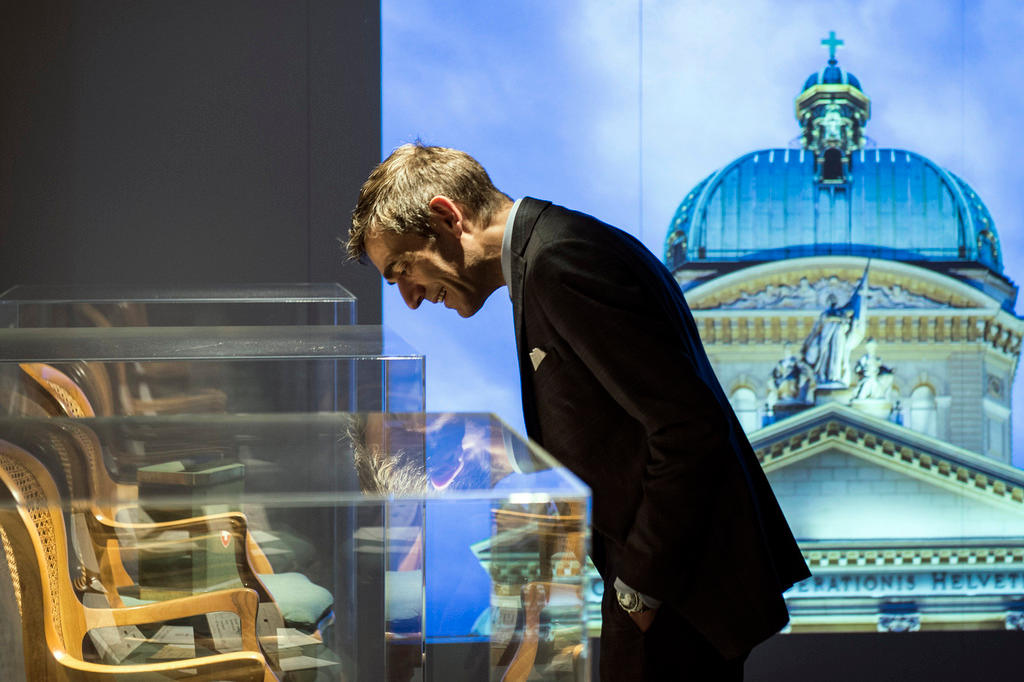
A recently rejected hardline deportation initiative has once again highlighted the importance of public debates, a key element of a vibrant democracy in a complex society. The question is how to promote such debates. The answer may lie behind the thick walls of a former prison of the capital, Bern.
When climbing the stairs of the 13th-century Käfigturm, you do not just end up in an information centre on democracy; the thick walls of the former fortified tower, which later became a prison, also are a venue for political events and exhibitions.
What’s special about these rooms, located in a prime spot near the parliament building, is that the federal authorities rent them out free of charge.
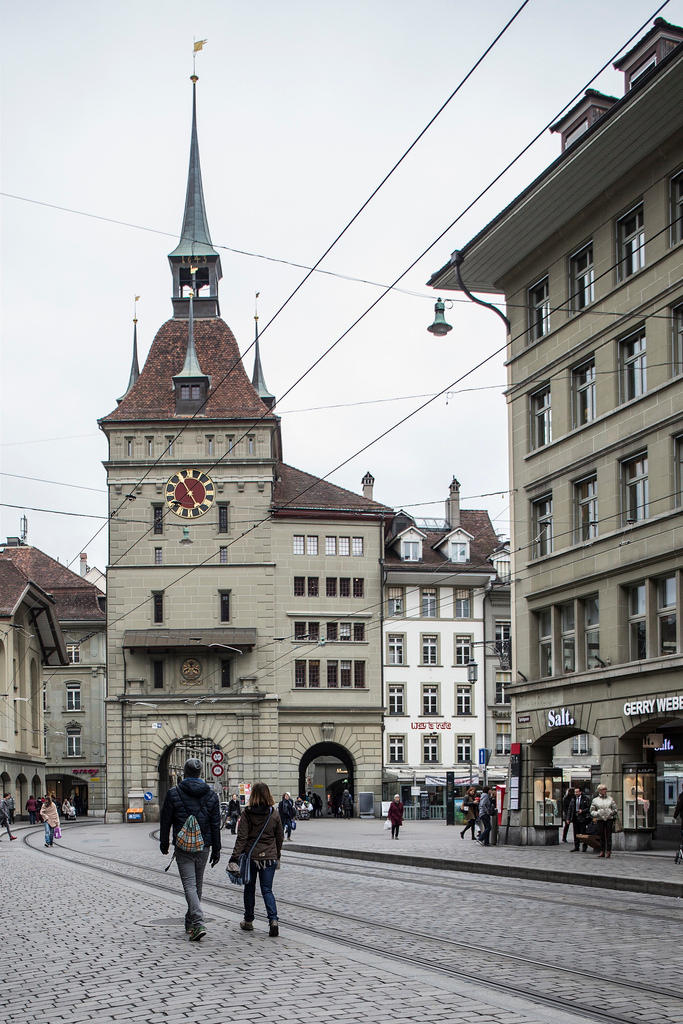
When booking the space, the simple but republican principle applies: “First come, first served,” says Michael Fritsche of the parliamentary services. “It doesn’t matter whether you are the Swiss foreign minister, a baker, a Swiss citizen or an Australian tourist.”
Together with his colleague Andreas Schilter and his small team, Fritsche has managed the political forum with its more than 400 events annually since 1999.
“If you launch a political proposal, this is the right address for you,” says Schilter. “Apart from holding news conferences of major groups, we host inaugural meetings of initiative committees or controversial debates, such as on Middle Eastern policy including a representative of the Israeli embassy.”
The whole process is based on trust rather than control, and organisers are sometimes even left to lock the building themselves after the event.
In fact, security has never been an issue in all these years, even though some of the debates were pretty controversial. This is probably why the Käfigturm has never been in the headlines.
Facing closure?
However, this low-profile success might be why the federal authorities are toying with cutting the Käfigturm’s annual budget by around CHF1 million ($1 million), which in effect would mean its closure.
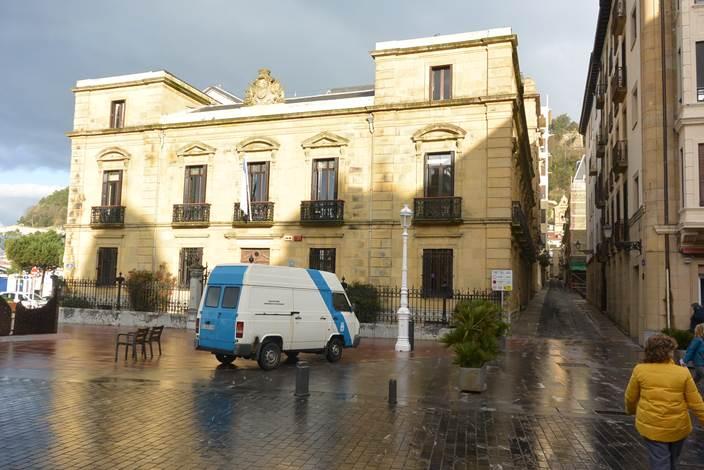
It is unfortunate that this is happening at a time when the Swiss parliament has decided to revamp more than 2,000 army vehicles at a cost of more than CHF500 million.
Closing the Käfigturm would not only be a serious mistake but a step into a less democratic direction.
It would go against a trend, which actually contributed to the mobilisation of a broad segment of our society, eventually leading to a rejection on February 28 of the initiative to automatically expel foreign criminals.
The impact of this vote is considerable: not only did it prompt the biggest turnout (63.1%) in more than 20 years. It also triggered public debates that left hardly anyone cold and its result caused a stir at home and abroad. After the clear “no”, the winners as well as the losers of the vote praised the advantages and wisdom of our direct democracy.
From 2017 to 2019 the Swiss government intends to save more than CHF1 billion. It has proposed 25 measures extending to all ministries, affecting personnel as well as administrative tasks. Over the course of 2016 parliament will decide on these cuts.
On a cantonal as well as a communal level, Bern’s authorities were alarmed by the austerity measures for the Käfigturm. Efforts are underway to financially support the venue or make the federal administration rethink its strategy.
However, we quickly forget that the actual breeding ground for our modern democracy is not only our relatively well-developed direct democratic right to launch people’s initiatives and referendums. Equally important are constructive public debates that often lead to such wise votes.
Participatory infrastructure
Apart from the voting rights enshrined in our constitution, such debates need a good participatory infrastructure.
In some communities, such infrastructure still exists in the form of formal or informal gatherings, be it in local assemblies or at tables for regulars in pubs.
In densely populated urban areas and on a federal level, such an infrastructure is anything but readily available. The media also play an important role in creating a constructive approach. They help ensure that it is not necessarily those with the biggest wallet who have the upper hand at decisive moments.
The fast-paced technological and social developments of the past few years have clearly shown that it takes more than just the odd controversial popular vote with a record turnout to develop the most important achievements of our modern democracy.
It also needs the right to have a say, a constitutional state and a culture of openness and tolerance.
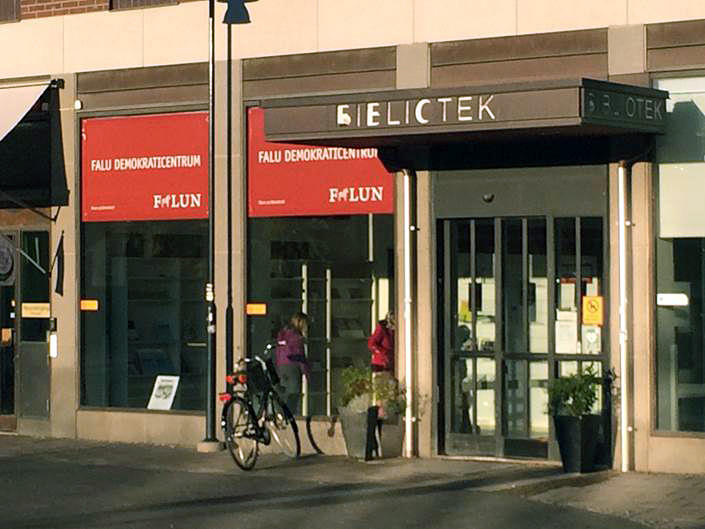
Apart from private forces, which became very active in the run-up to the vote on the hardline initiative, the public sector needs to get into gear during the less intense times between such votes, scheduled up to four times every year.
Just as with its direct democratic people’s rights, Switzerland also plays in the Champions League when it comes to a participatory infrastructure, such as parliamentary services for the people, without actually being aware of it.
Aside from the legendary and unique voting booklet introduced 40 years ago and the gradual introduction of e-voting, the political forum Käfigturm is definitely a significant part.
From prison to lighthouse
Those visiting Switzerland to find out more about our political system will most certainly pop into the Käfigturm sooner or later.
In the past 16 years, hundreds of visitor groups from abroad have had a look at the former prison and have seen the advantages of the idea and practice of this popular infrastructure.
This has led to the creation of copies of the political forum – of various sizes – all over the world.
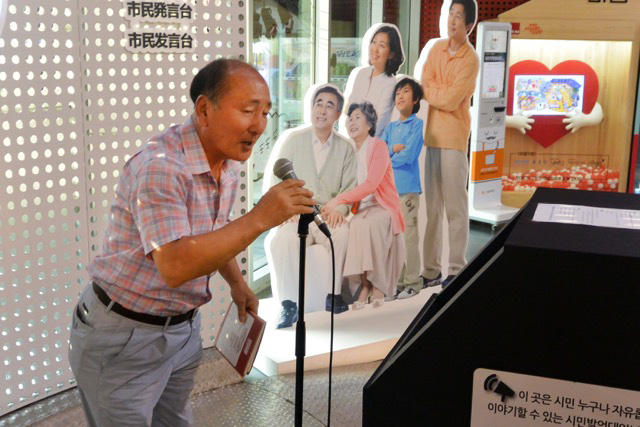
The most impressive example is undoubtedly the seven-storey Citizens’ Hall in the South Korean capital Seoul, which was created after a delegation of experts visited Bern in 2008.
Another example is the Public Access Room in the Hawaii State Capitol in Honolulu, where citizens get official support when exercising their political rights.
Europe has not been idle either and has created several democracy spaces based on the Käfigturm model. One prime example is the Basque town of San Sebastián, where a former prison under General Franco’s dictatorship has been converted into a centre for citizens’ participation, following the example of Bern’s Käfigturm.
In a place where people used to be tortured for their expressed opinions, they now receive advice on how to exercise their rights by a team of nine advisors.
The government on April 6 decided to extend for 12 months its annual subsidy to the Käfigturm political forum. The cabinet spokesman said the move would give organisers more time to find new sponsors.
Bruno Kaufmann is editor-in-chief of the global democracy platform, People2PowerExternal link, where this text was also published.
Translated from German by Billi Bierling

In compliance with the JTI standards
More: SWI swissinfo.ch certified by the Journalism Trust Initiative



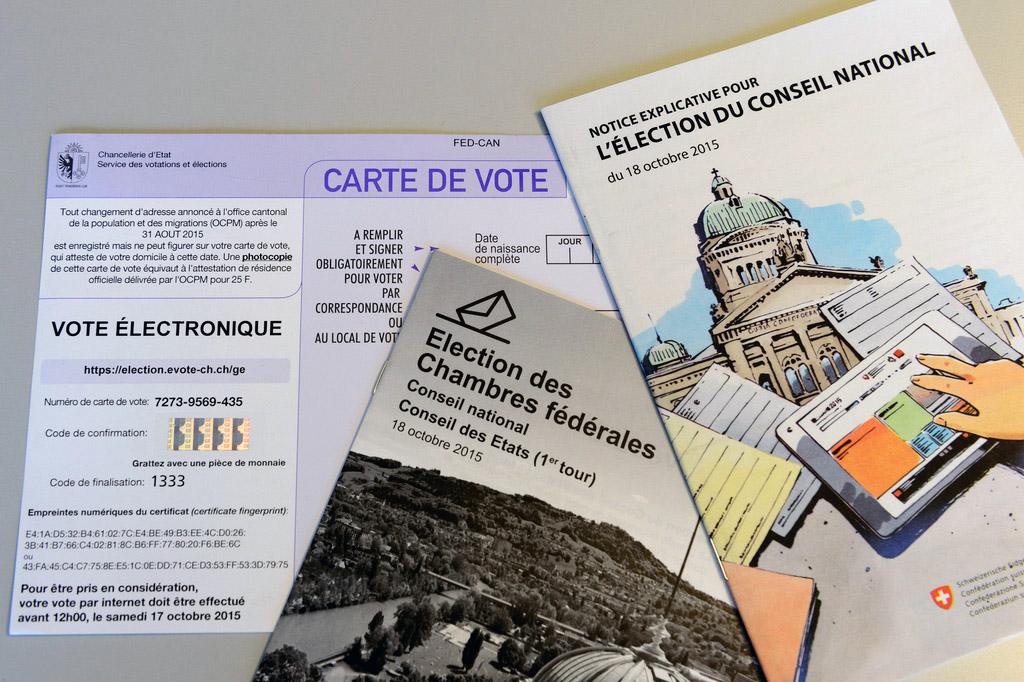
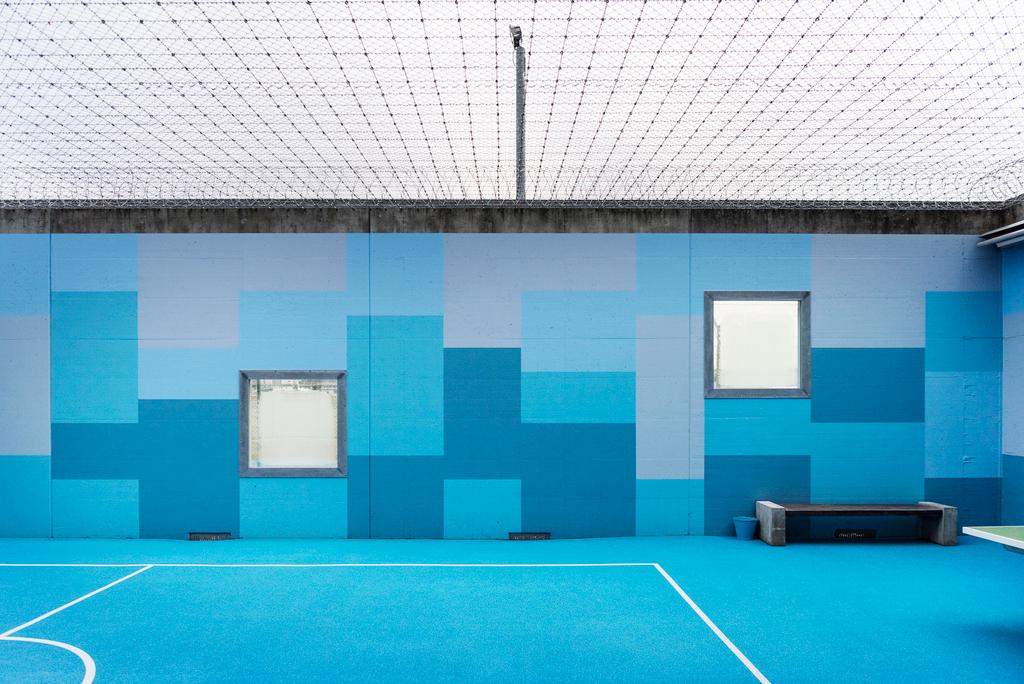
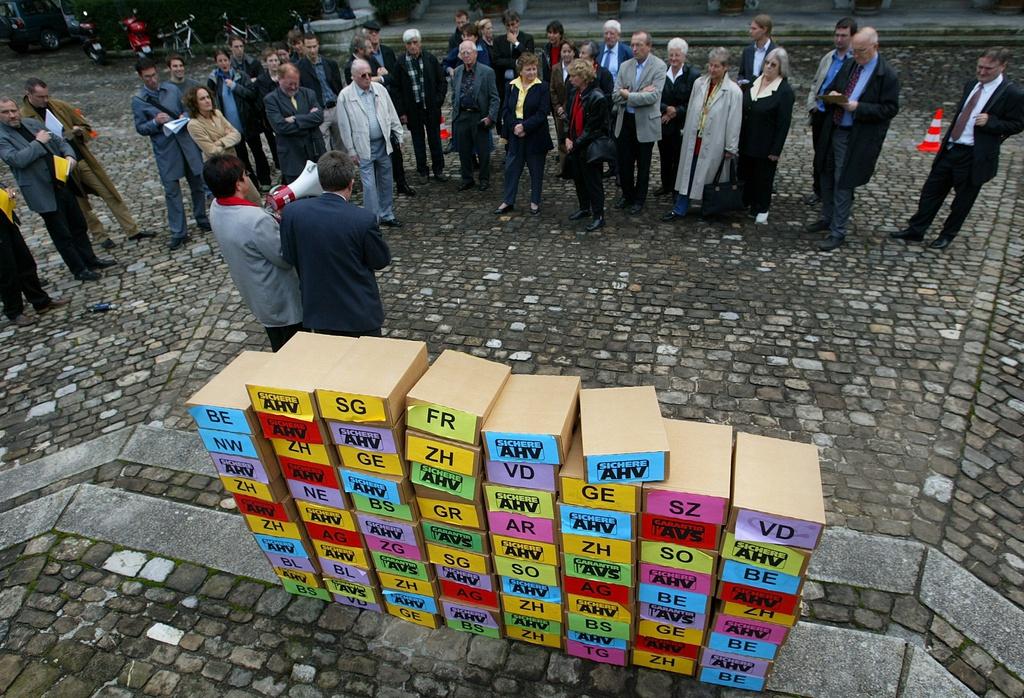

You can find an overview of ongoing debates with our journalists here. Please join us!
If you want to start a conversation about a topic raised in this article or want to report factual errors, email us at english@swissinfo.ch.